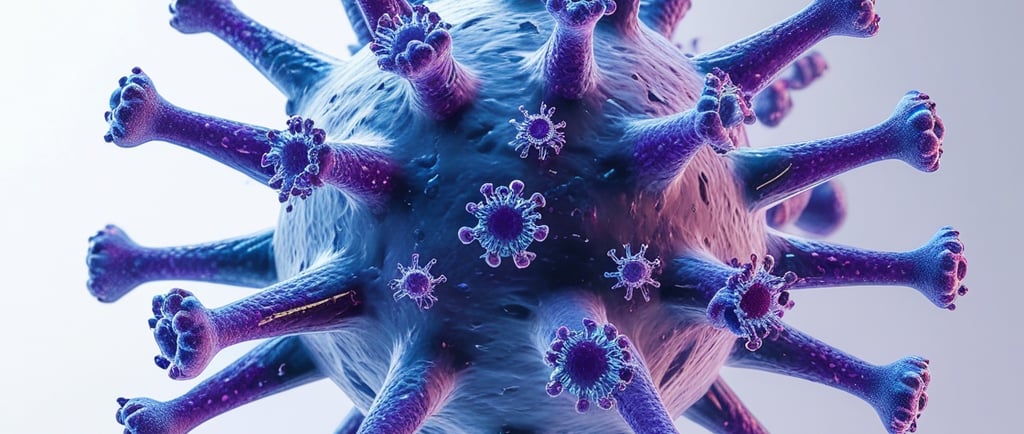WHO Urges China for COVID-19 Origins Data
As the five-year anniversary of COVID-19 approaches, the World Health Organization calls on China to provide essential data to uncover the covid-19 origins. With over seven million lives lost, understanding the pandemic's beginnings is crucial for global health and future preparedness.
GENERAL TOPIC
Dr. Rani
12/31/20243 min read
Five Years After the Pandemic’s Onset: Unraveling the Origins of COVID-19
The World Health Organization (WHO) has once again called upon China to provide crucial data to uncover the origins of COVID-19, as the world reflects on the five-year anniversary of the virus’ emergence in Wuhan. This global pandemic, which has claimed over seven million lives, fundamentally reshaped societies, economies, and healthcare systems worldwide. Yet, its origins remain shrouded in mystery and controversy.
The Initial Outbreak: Wuhan’s Defining Moment
On December 31, 2019, the WHO’s office in China flagged a statement from Wuhan’s municipal health commission that reported a cluster of pneumonia cases. What seemed like an isolated health concern rapidly escalated. By late January 2020, Chinese authorities imposed a strict lockdown on the city of 11 million, attempting to contain a virus that had already crossed borders and begun spreading globally.
The swift rise of COVID-19 disrupted every corner of the globe, leaving a trail of devastation. While lockdowns and restrictions are now largely a thing of the past, critical questions about how the pandemic began remain unanswered. This lack of clarity hinders not only our understanding of the virus but also our preparedness for future global health crises.
WHO’s Renewed Call for Transparency
The WHO has emphasized the importance of global cooperation in solving the mystery of COVID-19’s origins. In a statement issued on Monday, it declared: “We continue to call on China to share data and grant access so we can understand the origins of COVID-19. This is a moral and scientific imperative.”
The organization warned that without full transparency and collaboration, the world remains vulnerable to future pandemics. Access to raw data from early cases, including samples from the Huanan Seafood Market in Wuhan, could provide vital clues.
China’s Stance and the Global Debate
China’s Foreign Ministry has defended its handling of COVID-19-related data. Spokesperson Mao Ning stated, “China has always adhered to the spirit of science, openness, and transparency,” adding that the country has made “the greatest contribution to global tracing research.” However, critics argue that the data-sharing has been incomplete and, at times, delayed.
The debate over the virus’ origins has polarized the global community. Scientists and policymakers remain divided over two primary theories: natural spillover from animals to humans, potentially at a wet market, versus a laboratory accident. While many researchers lean toward a zoonotic origin, suspicions of a lab leak—once dismissed as conspiracy—persist, with some studies supporting both scenarios.
Scientific Efforts and Persistent Challenges
Efforts to trace the origins of COVID-19 have faced numerous hurdles, not least of which is access to critical data. It was not until 2023 that researchers gained access to certain genetic sequences collected from the Huanan Seafood Market in early 2020. Analysis of these samples, later published in Cell, revealed the presence of coronavirus-susceptible animals alongside the virus itself. However, the study stopped short of confirming whether these animals were infected.
WHO officials have repeatedly criticized the lack of timely and comprehensive data sharing, with one official labeling it “simply inexcusable” in 2023. Meanwhile, the global health community continues to urge transparency to prevent similar crises in the future.
A Time for Reflection
As we mark five years since the onset of the pandemic, it’s a poignant moment to reflect on the lives changed and lost. COVID-19 brought unimaginable challenges, but it also showcased humanity’s resilience, adaptability, and the heroic efforts of healthcare workers worldwide. The WHO’s recent statement calls for honoring those sacrifices and building a future that prioritizes health and preparedness.
My Personal Take
Reflecting on the pandemic’s journey brings a mix of emotions. It’s astonishing to think how the world came together to tackle an invisible enemy—from scientists racing to develop vaccines to ordinary people finding ways to support one another amid lockdowns. But the lingering questions about its origins remind us of the importance of truth and transparency.
As we look forward, let’s not only seek answers but also ensure we’re better prepared for what may come. This is not just a scientific pursuit but a collective responsibility—a chance to honor those we’ve lost and safeguard the future for generations to come. The lessons of COVID-19 must not be forgotten; they must drive us toward a healthier, more united world.


